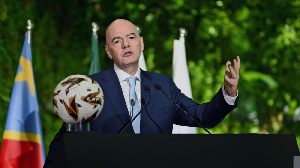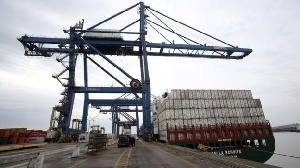To retain Ghana as a major customer in the sub-regional gas market, the West African Gas Pipeline Company Limited (WAPCo) and the West African Gas Pipeline Authority (WAGPA) are in talks to reduce its tariffs in order to stay competitive in the market.
Currently, the company produces 95 million standard cubic feet per day of gas, from the initial 85 million standard cubic feet, through an agreement arrived at before Ghana had developed any gas fields of its own.
Ghana since then though has acquired both its Jubilee and its Tweneboa, Enyenra Ntomme (TEN) gas fields and most importantly is about to commence production from its latest ones – the Sankofa and Gye Nyame gas fields which have the capacity to produce 190 million standard cubic feet per day (mmscfd).
Gas obtained from the Sankofa Project will enable 1,000MW of domestic power generation, which is equivalent to approximately 40% of the country’s total installed generation capacity.
Most importantly, it offers an opportunity for Ghanaian industry to enjoy lower electricity tariffs and thus become more internationally cost competitive. Following a rare, significant electricity tariff cut in April this year, Ghana’s power generation and distribution companies are currently engaged in negotiations with the Public Utilities Regulatory Commission to raise tariffs again. The results of those negotiations will be made public on December 9.
According to a recent World Bank report, the net cost of gas to Ghana from the Sankofa Gye Nyame is estimated at US$6.60/MMBtu, which is much lower than the current price for gas imports from Nigeria through the West African Gas Pipeline (US$8/MMBtu).
Since gas from the Sankofa Gas Fields is much cheaper than gas from Nigeria, a Committee of (Energy) Ministers meeting held in Accra last Friday, November 30, 2018, brought together industry players from Nigeria, Benin, Togo and Ghana to among other things, find sustainable measures aimed at implementing a new tariff rate and establish a new tariff setting methodology that can last for more than three decades.
Negotiations
The tariff from the West Africa Gas Pipeline is estimated to be one of the highest on the continent. Indeed, it was as a result of the high tariffs that Ghana resolved to build its own gas infrastructure to create the opportunity for bidirectional flow of gas and thus make Nigeria and Ghana complementary to each other in the market.
As at Friday, the tariff consultations and negotiations between WAPCo and the regulatory body WAGPA, aimed at finding a sustainable tariff rates for member nations in the sub-region had reached stalemate, with no final conclusion made.
This was due to the inability of the regulator and the company to reach common grounds for the reduction of the tariffs.
Speaking with Goldstreet Business, Walter Perez, Managing Director of WAPCo confirmed that the negotiation process for arriving at a new tariff has begun earnestly, and expectations are that a sustainable agreement would be reached by all the parties involved.
“Quite often we are limited by off-take capacity, not by supply. We expect the new tariff rates to be lower as a result of the increase in the use of the lines and supply of gas. We are committed to moving beyond stalemate and I appeal to you to create a win-win solution. This is really critical that we must align on principles”, he said.
Ghana’s Energy Minister John Peter Amewu stated that the country would not accept any tariff rates that will be imposed rather than derived from negotiations.
“We expect WAPCo not to assume that there is a captive market for them and that any rates charged will be accepted wholeheartedly. There is the possibility to consider building an alternative onshore pipeline which comes with invaluable advantages.
WAPCo must eschew creating a valid business case for Ghana to go the route to build an onshore pipeline”, he said.
Snippets of information picked by the Goldstreet Business indicate that WAPCo has proposed a formula for gas supply that will be factored on consideration of the volume of gas purchased within a period. This means, the more gas flows in the pipeline, the lower the tariff and vice versa. This according to the company, is a fair, balanced, transparent and competitive system of gas supply.
Legacy debt
It also came to the fore that more than half of Ghana’s “legacy debt” on energy has been cleared. Ghana owed approximately US$230 million, but its been reduced below US$80 million.
Business News of Monday, 3 December 2018
Source: goldstreetbusiness.com
WAGPCo, Ghana negotiate lower gas price
Opinions












